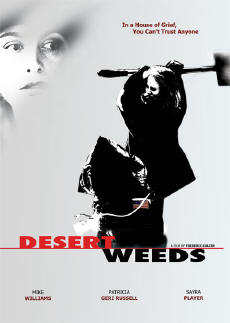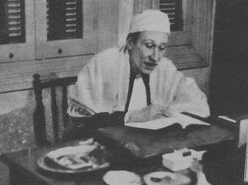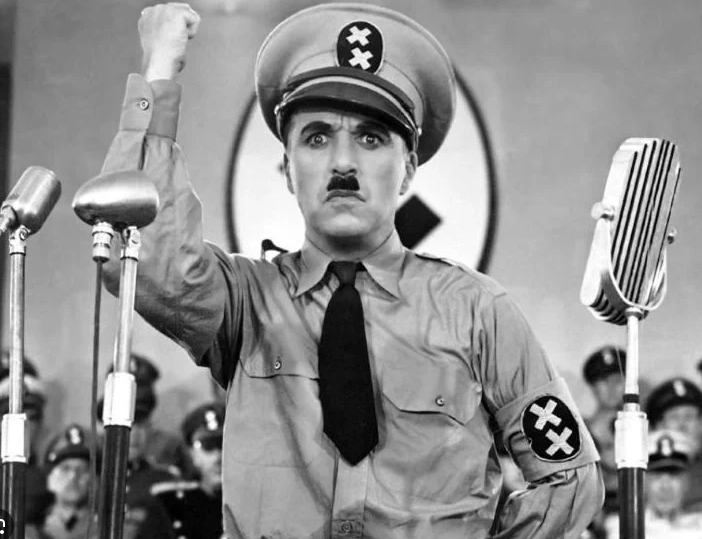Donald Trump has been labeled many things throughout his life: a conman, a mafia boss, a racist, and a genius. With Election Day nearing, the term “fascism” has been raining down on his parade. From his former Chief of Staff, John Kelly, to the former Chairman of the Joint Chiefs of Staff, General Mark Milley, to even the Vice President, Kamala Harris, many have not shied away from using it. The branding has been successful. Donald Trump and his fascist shadow are now linked.
It is a mistake, however, to call Donald Trump a fascist. It was not until the 2016 election that he embraced a pseudo-fascist persona to hide his real agenda, which has always been to enrich and empower Donald Trump.
Labeling him a fascist implies that Mr. Trump is a political animal. Combing through his track record: the successes, the staggering number of business failures, and lawsuits, one would be hard-pressed to detect traces of a political ethos. If anything, Donald Trump comes across as a shrewd individual able to parlay the judicial system and social norms to his advantage. He is not lawless; he works at the edge of lawlessness.
While he is often likened to the great dictators of the 20th century, Hitler, Mussolini, and Stalin, and has mentioned them himself, Mr. Trump is nothing like them. These tyrants were real zoon politikon. They knew their history. In fact, their interpretation of it fueled their actions and the so-called corrective measures they pursued to reshape humanity. They yearned to wrench their nation from the yoke of corruption, subversion, and decadence. In their bid to restore cultural, social, and moral values, they infused them with nostalgia, paranoia, revenge, and utopian ideals. Having harnessed mass resentment, they wielded draconian authority to bend humanity to their will. Without exception, these zoon politikon prophets promised salvation and sacrificed the masses on the way there. To reach them, they articulated specific ideologies. Stalin authored multiple volumes of treatises on Marxism and Leninism. Hitler wrote the infamous Mein Kämpf. Mao produced his little Red Book, and Mussolini alongside Giovanni Gentile laid the intellectual foundations of fascism.
In contrast, Mr. Trump has only co-authored business books and has never formulated a clear political program. If fascism demands deeply rooted historical and ideological convictions along with a thorough commitment to transforming society, Mr. Trump’s misses the mark. One would struggle to define Mr. Trump’s ideology during his first term as US President. Like many CEOs, he believes that a government and its institutions can be run like an efficient business. The less bureaucracy and fewer regulations, the better. He is driven solely by his opinions, intuitions, and impulsive reflexes. His decisions are made on the fly, never in alignment with clear ideological principles. While fascistic movements seek to increase regulations and expand the state’s role in all domains, Mr. Trump’s actual political agenda comes across as mainstream.
It is the embrace of fascistic practicality that gives his diatribes such a dissonant tone. His posture should really be called anti-politics. His so-called fascism is framed in negation. It is fixated on a culture of resentment rather than a forward-moving one. Mr. Trump’s anti-political program consists in dismantling regulatory institutions and weaponizing the useful ones (Justice Department, the IRS, and law enforcement agencies) to monopolize power. The promise of retribution for past grievances makes him authoritarian in expression but not in ideology. He is a businessman using a fascist veil to pursue ulterior motives.
Fascism came to Mr. Trump, and he resuscitated its shadow as a convenient strategy. His speeches exude the typical far-right narrative of decline, victimhood, and humiliation, America is coming to an end; criminals are invading our cities; respect is gone; everyone laughs at us. Mr. Trump never misses an opportunity to intermingle his own grievances. Everyone is out to get him. He is a victim of a political witch-hunt, persecuted by Congress and federal and state law enforcement agencies. To remedy this resentment, he exhorts the crowds with radical solutions: mass deportation, purging of federal agencies, persecution of enemies, and alignment of the Justice department with his anti-political agenda.
Moving from real estate developer to TV celebrity on The Apprentice, Mr. Trump now masquerades as an authoritarian, his infatuation with strongmen embellishing his demeanor. He often gives the impression of being endowed with a charismatic aura, as if hoping to conform reality to his will. But fixing societal issues was never his calling. Mr. Trump manifests a fascistic ethos without the convictions of its principles, a chasm most visible during his live performances. When he strays from the prompter, he is unable to sustain a coherent agenda. He defaults to rambling insults and clownish segues. It matters little whether a deep pathology, delusional or narcissistic in nature, is responsible for this state. His banner of resentment works, nevertheless. It allows him to control the mass movement and to manipulate it into a violent weapon if needed, as he did to disguise his humiliating defeat in 2020 with January 6th.
There is a logic to this blaring masquerade. Even in his authoritarian incarnation, Mr. Trump’s anti-politics comes across as the shady business deals of his early days. Resentment towards political opponents, other religions, fraudulent voting processes, and corrupted legal and judicial investigations, the list goes on, is good for business. Despite his apocalyptic assessment, Mr. Trump boasts a positive business outlook. His empire is thriving. Soon there will be a Trump Tower in Saudi Arabia. His Truth Social network has added billions to his net worth. Gaining political power is about gaining protection. What better position than occupy the White House to inoculate oneself from any type of legal interference. Is not the presidential immunity, expanded by the Supreme Court’ s decision, the ultimate insurance against any form of retaliation?
Soon after taking power, Mr. Putin restored the worn-out Russian autocracy. Blaming the West for all his political failures (even the war in Ukraine), he justified his tight grip on power to hijack the state, its government, and institutions, and built colossal wealth, using a battalion of oligarchs to protect him. The Russian model has been clearly too attractive for Mr. Trump to resist, even though he lacks Mr. Putin’s political heft. Mr. Trump appears to rely on a Putinesque hollow fascism to hijack the country with the help of billionaires. He clearly views his populist movement as a disposable commodity that will allow him to turn the country into his own personal economy.
The writing has been on the wall all along, however. His track record speaks for itself, an outlandish showman, whose life has been riddled with chaos and plagued with epic bankruptcies and legal troubles. With a win, Trump will turn the US into another Atlantic City.









